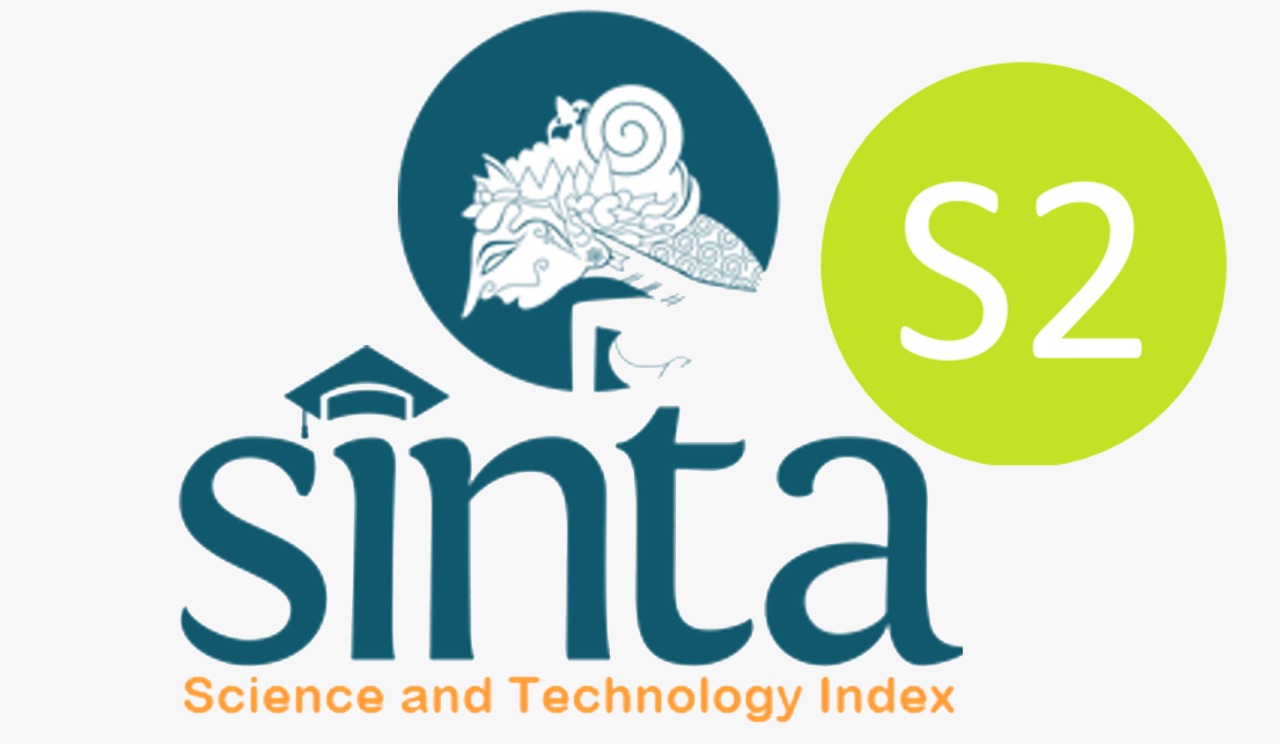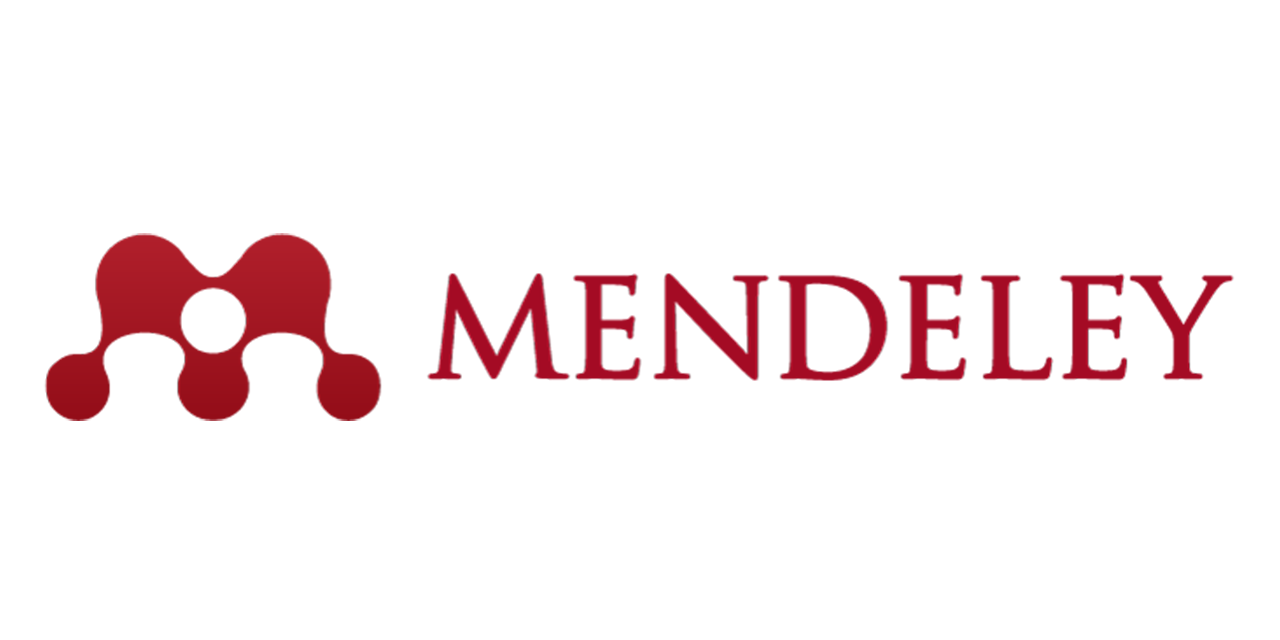INVESTMENT IN INTELLECTUAL CAPITAL AND ITS IMPACT ON THE PROFITABILITY OF ISLAMIC BANKS IN INDONESIA
Downloads
Introduction: Islamic banks in Indonesia show significant potential, although their current asset contribution is only 1,9 percent of total Islamic banking asset globally. This is quite a contrast to Indonesia’s title as the country with largest Muslim population in the world, as well as its ambition to become the center of the global sharia economy. One of the efforts that can be made to achieve this goal is by increasing the assets of Indonesian Islamic banks through enhancing their profitability.
Methods: This research uses secondary data from eight Sharia Commercial Banks (BUS) in the 2014-2022 period. A static panel regression model is used to examine the impact of Intellectual Capital on the profitability of BUS using Stata 17 application. The dependent variable is profitability, while the independent variables are IC and its components (Human Capital, Structural Capital, Customer Equity, and Relational Capital). The control variables consist of the ratio of total equity to total assets (EQA), non-performing financing (NPF), inflation, and the COVID-19 phenomenon.
Results: This study analyzes the impact of intellectual capital (IC) on the profitability of Islamic banks in Indonesia. The results show that IC has a significant positive effect on profitability. The components of human capital (HC) and capital employed (CE) contribute positively, while structural capital (SC) and relational capital (RC) do not have a significant impact.
Conclusion and suggestion: Findings of this research indicate that improving human resource competence and optimizing equity capital can enhance the profitability of Islamic banks, whereas investments in organizational structure, technology, and promotion do not yield significant effects. This study also provides policy implications for regulators and bank management in more effectively allocating IC investments. Additionally, the research suggests that Islamic banks should focus on digitalization and financial innovation to strengthen their performance.
Akkas, E. (2022). The impact of intellectual capital formation and knowledge economy on banking performance : a case study of GCC ’ s conventional and Islamic banks. https://doi.org/10.1108/JFRA-08-2021-0251
Al-Azizah, U. S., & Wibowo, B. P. (2023). IMPACT OF INTELLECTUAL CAPITAL ON FINANCIAL PERFORMANCE: PANEL EVIDENCE FROM BANKING INDUSTRY IN INDONESIA. Ikonomicheski Izsledvania, 32(5), 51–65. https://www.scopus.com/inward/record.uri?eid=2-s2.0-85162149041&partnerID=40&md5=abe3bd18cd8c2491d38d403fa42c05e1
Al-Homaidi, E. A., Tabash, M. I., Al-Dalaien, B. O. A., Khaled, A. S. D., & Almugari, F. (2022). The impact of firm-specific determinants, external factors and voluntary disclosure on capital structure: an empirical analysis of Islamic banks in Yemen. International Journal of Business and Systems Research, 16(5–6), 599–623. https://doi.org/10.1504/IJBSR.2022.125475
Aslam, E., Ur Rehman, A., & Iqbal, A. (2023). The mediating role of intellectual capital in corporate governance and financial efficiency of Islamic banks. Corporate Governance (Bingley). https://doi.org/10.1108/CG-06-2022-0276
Asutay, M., & Ubaidillah. (2023). Examining the Impact of Intellectual Capital Performance on Financial Performance in Islamic Banks. Journal of the Knowledge Economy. https://doi.org/10.1007/s13132-023-01114-1
Asyik, N. F., & Laily, N. (2022). The Role of Intellectual Capital in Intervening Financial Behavior and Financial Literacy on Financial Inclusion. WSEAS Transactions on Business and Economics, 19, 805–814. https://doi.org/10.37394/23207.2022.19.70
Azis, N., Basri, H., & Muhammad, Z. (2019). The relationship of Islamic performance index and intellectual capital by supply chain management toward banking financial performance in Indonesia. International Journal of Supply Chain Management, 8(3), 192–203. https://www.scopus.com/inward/record.uri?eid=2-s2.0-85068328630&partnerID=40&md5=639fa4dd86b52e573ca4a84fcad51c22
Barney, J. B., Ketchen, D. J., & Wright, M. (2011). The Future of Resource-Based Theory. Journal of Management, 37(5), 1299–1315. https://doi.org/10.1177/0149206310391805
Buallay, A., Cummings, R., & Hamdan, A. (2019). Intellectual capital efficiency and bank’s performance: A comparative study after the global financial crisis. Pacific Accounting Review, 31(4), 672–694. https://doi.org/10.1108/PAR-04-2019-0039
Buallay, A., Hamdan, A. M., Reyad, S., Badawi, S., & Madbouly, A. (2020). The efficiency of GCC banks: the role of intellectual capital. European Business Review, 32(3), 383–404. https://doi.org/10.1108/EBR-04-2019-0053
Ekaningrum, Y. (2021). The Influence of Intellectual Capital Elements on Company Performance. Journal of Asian Finance, Economics and Business, 8(1), 257–269. https://doi.org/10.13106/jafeb.2021.vol8.no1.257
Faozan, A., Syah, T. A., Kusuma, H., & Adawiyah, W. R. (2023). GOOD CORPORATE GOVERNANCE AND MODERATING THE INFLUENCE OF INTELLECTUAL CAPITAL ON THE FINANCIAL PERFORMANCE: THE STUDY OF THE ISLAMIC BANKING INDUSTRY. Corporate and Business Strategy Review, 4(2 Special Issue), 225–237. https://doi.org/10.22495/cbsrv4i2siart2
Farooq, M., & Ahmad, N. (2023). Nexus between board characteristics, firm performance and intellectual capital: an emerging market evidence. Corporate Governance (Bingley), 23(6), 1269–1297. https://doi.org/10.1108/CG-08-2022-0355
Farooque, O. Al, AlObaid, R. O. H., & Khan, A. A. (2023). Does intellectual capital in Islamic banks outperform conventional banks? Evidence from GCC countries. Asian Review of Accounting, 31(5), 805–831. https://doi.org/10.1108/ARA-12-2022-0298
Fitri, F. A., Syukur, M., Majid, M. S. A., Farhana, I., & Hatta, F. (2022). Do intellectual capital and financing matter for the profitability of the Islamic banking industry in Indonesia? International Journal of Monetary Economics and Finance, 15(3), 293–308. https://doi.org/10.1504/ijmef.2022.126888
Gho, P. C. (2005). Intellectual capital performance of commercial banks in Malaysia. Journal of Intellectual Capital, 6(3), 385–396. https://doi.org/10.1108/14691930510611120
Gunawan, R. M. B., & Widodo, W. (2022). Intellectual Capital and Corporate Governance Affect Organizational Performance through Competitive Advantage: Evidence from Indonesia. Quality - Access to Success, 23(189), 245–252. https://doi.org/10.47750/QAS/23.189.28
Hanifa, R., Adam, M., & Andriana, I. (2023). DOES COMPETITIVE ADVANTAGE, OPERATING EFFICIENCY AND INTELLECTUAL CAPITAL EFFECT SUSTAINABLE COMPETITIVE ADVANTAGE (SCA)? Journal of Law and Sustainable Development, 11(3). https://doi.org/10.55908/sdgs.v11i3.463
Heriyanto, A. L. (2023). The Determinantof Company Value Creation Based on Resource-Based View Theory Perspective. Quality - Access to Success, 24(196), 133–139. https://doi.org/10.47750/QAS/24.196.18
Ilahiyah, M. E., Soewarno, N., & Jaya, I. M. L. M. (2021). The Effect of Intellectual Capital and Financial Services Knowledge on Financial Inclusion. Journal of Asian Finance, Economics and Business, 8(1), 247–255. https://doi.org/10.13106/jafeb.2021.vol8.no1.247
Kadim, A., & Zain, Y. (2017). Determinants of cost efficiency and it’s implications on Sharia Bank in Indonesia profitability at the period of 2012 - 2016. International Journal of Economic Research, 14(16), 107–126. https://www.scopus.com/inward/record.uri?eid=2-s2.0-85040178478&partnerID=40&md5=a7fb1ec1b436fdaa2cd9b59f268103f3
Khalifaturofi’ah, S. O. (2023). Cost efficiency, innovation and financial performance of banks in Indonesia. Journal of Economic and Administrative Sciences, 39(1), 100–116. https://doi.org/10.1108/jeas-07-2020-0124
Margareta, C. R., & Prasetyo, K. (2020). Financial performance as an intervening variable in the relationship between intellectual capital and firm value. Cuadernos de Economia, 43(123), 428–434. https://doi.org/10.32826/cude.v4i123.405
Marsintauli, F., Novianti, E., Situmorang, R. P., Prasarry, Y. V, & Banna, S. (2023). Does the Market React to Intellectual Capital, Capital Structure, Geopolitical Risk, and Cryptocurrency Impact? 2023 8th International Conference on Business and Industrial Research, ICBIR 2023 - Proceedings, 206–211. https://doi.org/10.1109/ICBIR57571.2023.10147529
Nadeem, M., Gan, C., & Nguyen, C. (2017). Does intellectual capital efficiency improve firm performance in BRICS economies? A dynamic panel estimation. Measuring Business Excellence, 21(1), 65–85. https://doi.org/10.1108/MBE-12-2015-0055
Naushad, M. (2019). Intellectual capital and financial performance of sharia-compliant banks in Saudi Arabia. Banks and Bank Systems, 14(4), 1–9. https://doi.org/10.21511/bbs.14(4).2019.01
Nawaz, T., & Haniffa, R. (2017). Determinants of financial performance of Islamic banks: an intellectual capital perspective. Journal of Islamic Accounting and Business Research, 8(2), 130–142. https://doi.org/10.1108/JIABR-06-2016-0071
Orakwue, A. C., & Oghuvwu, M. E. (2019). Corporate Social and Environmental Reporting (CSER) and Financial Performance: The Mediating Role of Competitive Advantage. Journal of Economics, Management and Trade, 1–11. https://doi.org/10.9734/jemt/2019/v23i230123
Otoritas Jasa Keuangan. (2022). Laporan Perkembangan Keuangan Syariah Indonesia 2022.
Ousama, A. A., Hammami, H., & Abdulkarim, M. (2020). The association between intellectual capital and financial performance in the Islamic banking industry: An analysis of the GCC banks. International Journal of Islamic and Middle Eastern Finance and Management, 13(1), 75–93. https://doi.org/10.1108/IMEFM-05-2016-0073
Pratama, B. C., & Innayah, M. N. (2021). Can Family Ownership Strengthen the Relationship Between Intellectual Capital and Performance in ASEAN High-Tech Firms? International Journal of Business and Society, 22(3), 1102–1122. https://doi.org/10.33736/ijbs.4286.2021
Saruchi, S. A., Zamil, N. A. M., Basiruddin, R., Rasid, S. Z. A., & Ahmad, N. F. G. (2019). Empirical linkage of intellectual capital and performance of Islamic banks. International Journal of Engineering and Advanced Technology, 8(5), 677–684. https://doi.org/10.35940/ijeat.E1095.0585C19
Setyawati, I., Widyastuti, T., Suryati, A., & Hartani, N. H. (2019). Intellectual capital performance of islamic banks in Indonesia: Towards competitive advantages. Management Science Letters, 9(12), 1999–2008. https://doi.org/10.5267/j.msl.2019.7.006
Siswanti, I., & Cahaya, Y. F. (2020). Sustainable business islamic banks in indonesia. Accounting, 7(2), 299–310. https://doi.org/10.5267/j.ac.2020.11.023
Soetanto, T., & Liem, P. F. (2019a). Intellectual capital in Indonesia: dynamic panel approach. Journal of Asia Business Studies, 13(2), 240–262. https://doi.org/10.1108/JABS-02-2018-0059
Soetanto, T., & Liem, P. F. (2019b). Intellectual capital in Indonesia: dynamic panel approach. Journal of Asia Business Studies, 13(2), 240–262. https://doi.org/10.1108/JABS-02-2018-0059
Soewarno, N., & Tjahjadi, B. (2020). Measures that matter: an empirical investigation of intellectual capital and financial performance of banking firms in Indonesia. Journal of Intellectual Capital, 21(6), 1085–1106. https://doi.org/10.1108/JIC-09-2019-0225
Sri, R., Mahdi, F., Triastuti Kurnia, N. H., & Habibie, A. (2022). Intellectual capital and islamic corporate social responsibility on the financial performance of sharia commercial banks in Indonesia. In M. null, M. null, Z. null, M. N. Z., Y. D.H., B. M.N., I. M., F. N., S. null, & H. H.A. (Ed.), E3S Web of Conferences (Vol. 339). EDP Sciences. https://doi.org/10.1051/e3sconf/202233905003
Ulum, I. (2013). MODEL PENGUKURAN KINERJA INTELLECTUAL CAPITAL DENGAN IB-VAIC DI PERBANKAN SYARIAH. INFERENSI, 7(1), 185. https://doi.org/10.18326/infsl3.v7i1.185-206
Ulum, I., Kharismawati, N., & Syam, D. (2017). Modified value-added intellectual coefficient (MVAIC) and traditional financial performance of Indonesian biggest companies. International Journal of Learning and Intellectual Capital, 14(3), 207–219. https://doi.org/10.1504/IJLIC.2017.086390
Ur Rehman, A., Aslam, E., & Iqbal, A. (2022). Intellectual capital efficiency and bank performance: Evidence from islamic banks. Borsa Istanbul Review, 22(1), 113–121. https://doi.org/10.1016/j.bir.2021.02.004
Van Nguyen, T., & Lu, C. H. (2023). Financial intermediation in banks and the key role of intellectual capital: new analysis from an emerging market. Journal of Financial Services Marketing, 0123456789. https://doi.org/10.1057/s41264-023-00220-0
Vidyarthi, H., & Tiwari, R. (2020). Cost, revenue, and profit efficiency characteristics, and intellectual capital in Indian Banks. Journal of Intellectual Capital, 21(1), 1–22. https://doi.org/10.1108/JIC-05-2019-0107
Wahab, A., Abbas, N., Syariati, A., & Syariati, N. E. (2020). The Trickle-Down Effect of Intellectual Capital on Banks’ MacroPerformance in Indonesia. Journal of Asian Finance, Economics and Business, 7(12), 703–710. https://doi.org/10.13106/JAFEB.2020.VOL7.NO12.703
Wahyuni, S., Pujiharto, P., Pratama, B. C., & Azizah, S. N. (2023a). Analysis of the rate of growth of intellectual capital ability in predicting present and future profitability of Sharia commercial banks in Indonesia. Asian Journal of Accounting Research, 8(2), 194–206. https://doi.org/10.1108/AJAR-10-2021-0226
Wahyuni, S., Pujiharto, P., Pratama, B. C., & Azizah, S. N. (2023b). Analysis of the rate of growth of intellectual capital ability in predicting present and future profitability of Sharia commercial banks in Indonesia. Asian Journal of Accounting Research. https://doi.org/10.1108/AJAR-10-2021-0226
Weqar, F., Khan, A. M., & Haque, S. M. I. (2020). Exploring the effect of intellectual capital on financial performance: a study of Indian banks. Measuring Business Excellence, 24(4), 511–529. https://doi.org/10.1108/MBE-12-2019-0118
Copyright (c) 2024 Trisnaning Setya Sutjipto, T. Saipul Hadi

This work is licensed under a Creative Commons Attribution-ShareAlike 4.0 International License.
Authors who publish with Jurnal Ekonomi dan Bisnis Airlangga agree to the following terms:The journal allows the author to hold the copyright of the article without restrictions.
The journal allows the author(s) to retain publishing rights without restrictions
The legal formal aspect of journal publication accessibility refers to Creative Commons Attribution Share-Alike (CC BY-SA).
Jurnal Ekonomi dan Bisnis Airlangga (JEBA) is licensed under a Creative Commons Attribution-ShareAlike 4.0 International License

















